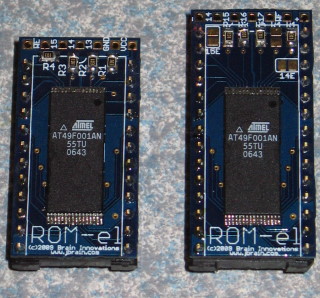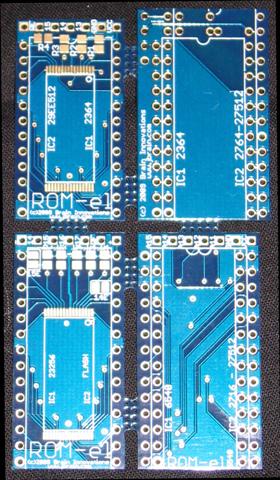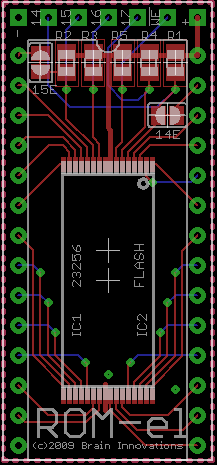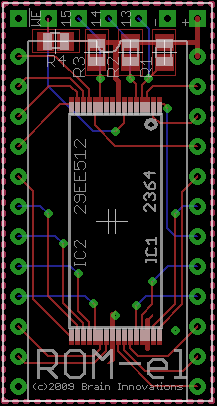I’ve initiated phase 1 of ROM-el production, scheduling the PCB design for production and shipment. ROM-el will be completed in 3 phases:
- PCB manufacture and shipment of 2 bare boards
- Manual assembly and testing
- Release PCB for assembly and shipment
This is typical for new designs, for the following reasons:
- Given the low cost of production boards, it’s cheaper to make a production board run instead of an initial prototype board run. In the best case, the board is operational and no prototype board costs are incurred. At worst, the board must be “spun” once more, but the total cost does not exceed a prototype + production run cost.
- Shipping 2 boards ahead of time permits verification of the design before assembly. The boards are shipped at no cost by “piggybacking” them on a previous order that is nearing completion.
Normal turnaround is 10 business days (2 calendar weeks), so I expect boards around July 12th.
To save costs in creating the SMT stencil and the boards themselves, I “merged” 4 designs into one set of files for the PCB house using Gerbmerge. I struggled to install the program in Windows, which was unsucessful. The application has some dependencies, one of which requires a C compiler. The Windows install of the dependency assumes Visual C++, which I do not own. After wasting a few hours, I installed on the local Linux server, which was trivial. The application is very straightforward, and I was able to create a minimal merged set of files in a few minutes. Thus, I will be receiving 100 units of:
- ROM-el 2364
- ROM-el 23128/23256
- 2364Adapter (simple DIP style 24-28 pin adapter
- 6540Adapter (CBM-Hackers folks asked for this design, which has not been tested)
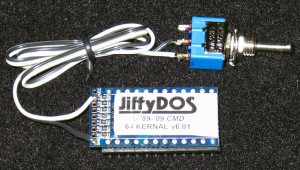
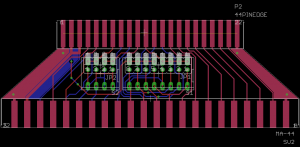 Based on a customer request, I’ve designed a small adapter card that will allow C64 cartridges to be used in the Commodore VIC-20. The design is not finished, and suggestions are appreciated. Switches allow the IO and BLK select lines to be configured per cartridge. Barring any major changes to the design, I hope to have units available early 2010.
Based on a customer request, I’ve designed a small adapter card that will allow C64 cartridges to be used in the Commodore VIC-20. The design is not finished, and suggestions are appreciated. Switches allow the IO and BLK select lines to be configured per cartridge. Barring any major changes to the design, I hope to have units available early 2010.